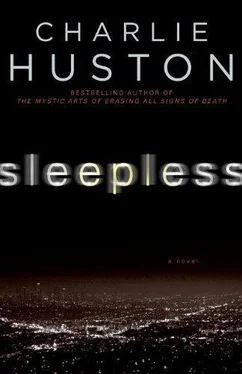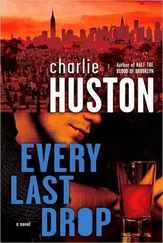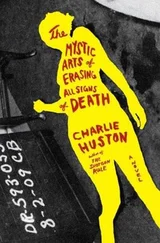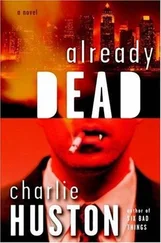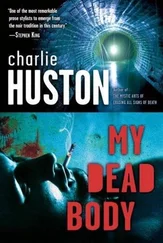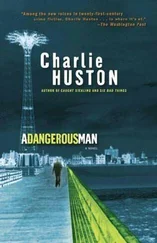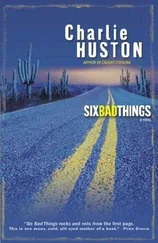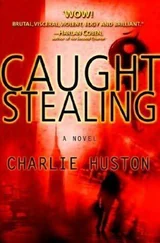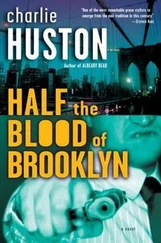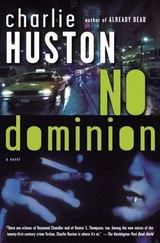He stopped speaking, and nothing was said in the room for a moment, and he nodded and continued.
“As I expected. However, you had among your possessions when you were picked up, a bottle of Dreamer. It will still be with your possessions when they are returned to you at your car.”
He tightened the belt of his bathrobe.
“In this house, the main house, I mean, are many members of my extended family. They are here because I can care for them. Most of them are sleepless. Some are in the suffering. They have almost unlimited access to Dreamer. They can take a cap or two whenever they feel disoriented or in pain, and sleep and dream. And wake feeling almost like themselves. Unlike most anyone else in the world, they can do that for as long as several months, until they die. Not just the last few weeks like they do in the hospitals. Or, if they choose, if they are tired and spent and sad with the world, they can swallow twelve to eighteen caps of Dreamer at once and go deeply to sleep. The sleep lasts for several minutes to several hours, it is characterized by a general relaxation of all muscles, brain waves fall into continuous deltas, profound REM dreaming, no indications of unsettled or unpleasant dreams, and as the muscles relax further, the lungs slowly stop expanding, and the heart stops beating. From everything I have seen, it is a peaceful and merciful death.”
He stood at the door.
“As I say, that bottle of Dreamer will be with your possessions when you are sent home. It is yours. To do with what you will.”
He twisted the knob.
“Odd to think, I’d not have met you if it wasn’t for my son’s unwillingness to use a proper security detail. I’m forced to have my boys spy on him from a distance. That’s the only reason they caught wind of the man at your heels. If it had just been you, I don’t imagine I’d have gotten involved. But I saw the file on that man. Jasper. No last name. Never a good sign, no last name. Not someone you want near your family. Some of my people had it in their heads the two of you were working together. But I can see pretty clearly they were mistaken. Any idea why he was following you?”
Park was at sea now, barely treading water, so he saved his breath.
Senior patted his hair.
“Well, I wouldn’t say it was nothing to be concerned about, drawing the attention of such a man, but he won’t be an issue for you or yours. Or for anybody. And the world will be a better place without him.”
He opened the door.
“I’m grateful to him, in any case, for giving me an excuse to meet you. It was a pleasure, Officer Haas. I wish you peace of mind. Goodbye.”
He stepped out of the room, leaving Park alone in the new world.
ROSE GARDEN HILLER, STAUNCHLY FEMINIST, LIKED HER OWN last name. So she kept it. But she thought hyphenated last names were stupid and was happy to give her daughter the name Haas.
She was born in 1982. Her parents were divorced but remained on friendly terms and shared the raising of their daughter, though she did live primarily with her mother in what was little more than a cabin in the Berkeley hills.
When forced by circumstances she could not thwart to fill out any official paperwork, Rose’s mother would describe her profession as Social Activist. She and her ex had set divorce terms that did not include alimony. She’d refused any offer of “patriarchal patronage.” She was, however, practical enough to have agreed to accept a stipend on Rose’s behalf. There was no hypocrisy. Every penny of the checks she received was allocated to Rose’s care. Any money left over at the end of the month went into Rose’s college fund. She fudged only very slightly in that she occasionally used a small amount of Rose’s money to help cover the utilities. Rationalizing to herself that water and power were both necessary to raising a healthy child, but always doing her best to eke the difference out of her own earnings so that she could pay back what she had taken out.
One of Rose’s earliest memories, perhaps her single earliest, she couldn’t be certain, was of riding on the back of her mother’s Schwinn, holding her arms out straight from her shoulders, airfoiling her hands in the breeze as they careened down the steep potholed streets into town. Days spent at co-op vegetable gardens, on picket lines, going door-to-door with petitions, at the campaign offices of independent candidates for local office, watching her mother holding young women’s hands at Planned Parenthood, and then sleeping in the same seat, as her mother pushed the bike back up the hills in the evening if no one from one of the causes had been able to put it in the back of her Volvo and drive them home.
Her father was a lawyer. Devoted to social change, but not so much that he was willing to work totally without recompense, he was a junior, eventually full, partner at a firm that specialized in environmental law. An early memory of days with her father involved, not coincidentally, standing unrestrained on the passenger seat with her face stuck above the windscreen of his 1973 Porsche 911 roadster as he drove them across the Golden Gate Bridge from his Marin home to his office in the city. Mornings spent in progressive pre-K, afternoons tagging along with him to inspect a stretch of wetlands where abuses were suspected, sitting on his office floor in a small corral of law books, being passed off to one of the women he dated monogamously for long periods of time before becoming distracted and gently showing them the way out of his life, women who almost invariably took her to the Exploratorium, then being bundled into the Porche for a sleepy ride back to the house for a spaghetti dinner and a bedtime song, Pink Floyd’s “Wish You Were Here.”
Parker Haas had been a surprise. In truth, he had been more of a tectonic shift in everything she had ever thought she wanted and desired from life. What she thought she’d wanted was unfettered freedom. A long string of lovers who were strikingly beautiful to look at but emotionally uncomplicated. Men and women who were, she would freely admit, not unlike her father in those qualities. Whether she chose to finish her fine arts degree or not, she wanted to pursue her interest in digital video manipulations. What she called, when pressed by a particularly cute grad student who taught one of her studio classes, “culturally ironic metatations.” Said with utter seriousness and no pretense. She wanted children, or a child, but couldn’t fathom marriage. She welcomed the idea of a coparent, but only if that person could be as respectful of her time with the child as her parents had always been of each other’s.
When, during her sophomore year at Cal, her father died of a heart attack at forty-six, she found she wanted to stay close to her mother, who, it turned out, had been secretly and irreparably heartbroken the moment he had sat next to her on their bed three weeks after he had turned twenty-nine and told her that he thought their roots were too tangled and he needed new soil. The heartbreak was revealed at home after his memorial service, after the spilling of his ashes in the bay, when she collapsed in the middle of the kitchen floor and began wailing. A wail that continued intermittently for three days. Rose had had no idea of the depth of her mother’s love for her father. She bestowed her own love freely and with abandon. She loved her parents, her surviving grandparents, her two aunts, three uncles, and five cousins, she loved her many friends, she loved her lovers. But she loved all of them lightly. As if the wide disbursement of her love had diluted it somewhat. What she saw from her mother in those three days, and not infrequently over the rest of her mother’s life, was alien and terrifying. Passions in both her parents had been reserved for cases of social injustice, the idiocies of governments, wonder in nature, and certain works of art. She knew that emotion of that intensity focused on another person was binding. Contrary to the freedom she saw as her natural element. It shocked her. Yet, rather often, usually in the day or two after she had jettisoned an especially endearing lover, she sometimes caught herself reimagining that display of grief, substituting herself for her mother. Those imaginings were never very detailed, they took place not in her mother’s kitchen but in a blank nonspace, the fate of her lost love was never specified, nor was his or her identity. She literally could not imagine who it was she might suffer for so. If she had forced herself to go deeper into this fantasy, to construct a vague ideal, that person would not in the least have resembled Park.
Читать дальше
